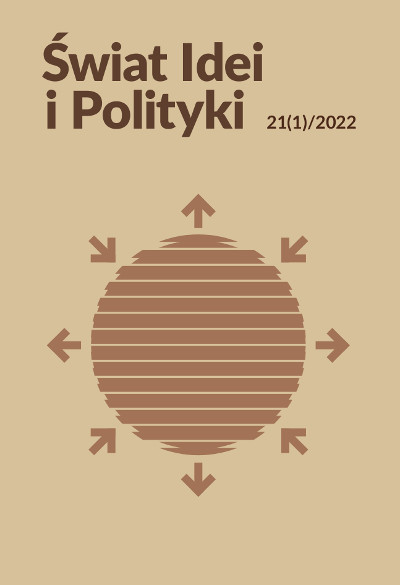Connection between ecological awareness and environmental policy pursued in the European Union Member States on the example of Poland and Sweden
DOI:
https://doi.org/10.34767/SIIP.2022.01.01Keywords:
Poland, Sweden, European Union, environmental policy, ecology, educationAbstract
The purpose of the article is to present the connection between ecological education offered in the country and the environmental policy which is pursued there. The research also included the actual condition of the environment. The analysis covered statistical data published by the Polish Central Statistical Office, European Union’s institutions and others, as well as reports, scientific and journalistic articles. Two of the EU member states, Poland and Sweden, made an example in the thesis. Among other things, their waste recycling level and the energy policy in these countries, including the share of renewable energy in their electricity generation, were compared. The national regulations have been compared with the standards set by the European Union. The article contains references to the most important events related to the global condition of the natural environment in the last few years, including the Paris Agreement of 2015 and other climate summits. The investigation and observations clearly show the relationship between the effectiveness and the manner of conducting activities in the political sphere and the level of ecological awareness and education of the society.
References
Bińczyk, E. (2018). Epoka człowieka. Retoryka i marazm antropocenu. Warszawa: Wydaw-nictwo Naukowe PWN.
Boryczko, B. & Musielak, T. & Norwisz, J. (2006). Odnawialne źródła energii – polskie de-finicje i standardy. Rynek Energii, 1, 11.
Ignarska, M. (2013). Odnawialne źródła energii w Polsce. Poliarchia, 1, 58.
Krzemiński, M. (2000). Ochrona przyrody i edukacja ekologiczna młodzieży u progu III Ty-siąclecia. Radom: Zarząd Okręgu Ligi Ochrony Przyrody.
Rozporządzenie Ministra Środowiska z dnia 14 grudnia 2016 r. w sprawie poziomów recy-klingu, przygotowania do ponownego użycia i odzysku innymi metodami niektórych frakcji odpadów komunalnych. Dz. U. poz 2167.
Schonwiese, C. (1997). Klimat i człowiek. Warszawa: Prószyński i S-ka.Serwis Samorządowy PAP (2020).
Szczerbowski, R. (2016). Prognoza rozwoju polskiego sektora wytwórczego do 2050 roku – scenariusz węglowy. Polityka energetyczna, 9(3), 6.
Ustawa z dnia 27 kwietnia 2001 – Prawo ochrony środowiska. Dz. U. nr 62 poz. 627.
Zalewski, M. (2012). Ekohydrologia: nauka integrująca wiedzę o procesach środowisko-wych. Biuletyn Polskiego Komitetu ds. UNESCO.
.Zuzek, D. (2017). Świadomość ekologiczna przedsiębiorców jako element zrównoważone-go rozwoju. Studia Ekonomiczne. Zeszyty Naukowe Uniwersytetu Ekonomicznego w Ka-towicach, 326, 167.


